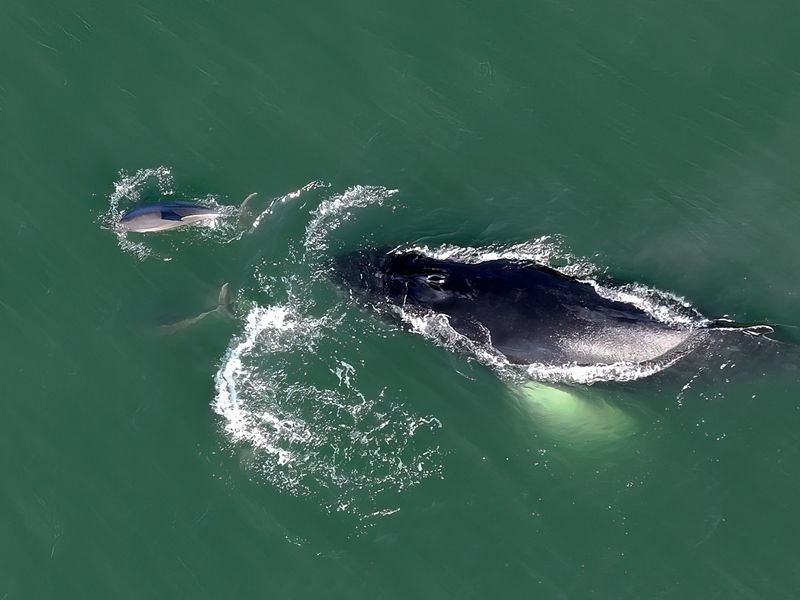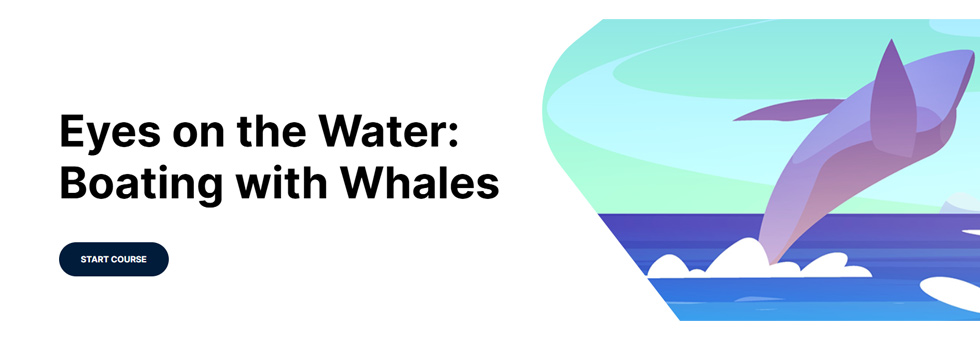Photo: Boating with whales
By Kate Frazer, New York Marketing and Communications
Stories in New York
Morning fog clings to the surface of the water as Carl LoBue guides a small research vessel through the damp air and into the open Atlantic. A pod of dolphins arcs through the waves, and the misty spout of a humpback whale erupts like a signal flare. For LoBue, marine scientist and New York oceans director at The Nature Conservancy, these moments are more than breathtaking—they’re signs of a recovery decades in the making.
Now, that revival is driving a new kind of action: Eyes on the Water: Boating with Whales, a a free online course designed to help boaters safely navigate whale habitats. The interactive course simulates a journey through New York’s iconic waterways, teaching users to recognize whale behavior, avoid collisions and report sightings.

Rebosante de vida. Un delfín y una ballena jorobada se deslizan por aguas de Nueva York, atraídos por poblaciones de peces en recuperación y mares más limpios. © Joanna Steidle/Hamptons Arte con drones
Eyes on the Water
Eyes on the Water: How It Works and What You’ll Learn
The Eyes of the Water ourse simulates a journey from Captree State Park to Great Kills Harbor, teaching boaters how to spot whales, understand their behavior and report sightings.
“It’s not just about avoiding collisions,” LoBue explains. “It’s about building a community of people who understand the ocean and want to protect it. You’re not just steering a boat—you’re entering someone else’s home. Every ripple, every sound, every movement matters.”
LoBue and his team worked closely with state agencies, educators and other marine experts to ensure the curriculum is accurate and accessible. It’s designed for easy sharing—flexible enough to be delivered as part of New York's approved safe-boating courses or taken by those who have already completed a safe boating course without whale-safety training.
Every certificate earned represents a boater who’s better equipped to protect marine life. “No one wants to hit a whale, and yet it happens all too often,” says LoBue. “We’re helping captains do what they already want to do—reduce their risk and use the ocean wisely and safely.”
If you would like more information about the course, click on the following link.
Source:
Press release link: The Nature Conservancy
Photo ©: The Nature Conservancy
Copyright © 2025 The Nature Conservancy. All rights reserved.




